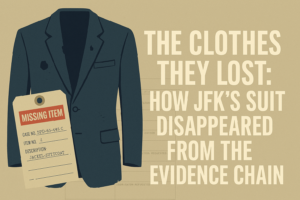The Senate voted narrowly this week to block an amendment from Democratic Leader Chuck Schumer that would have forced the release of federal documents connected to Jeffrey Epstein.
The proposal was introduced during debate on the National Defense Authorization Act and mirrored a similar push in the House by Republican Rep. Thomas Massie of Kentucky.
The amendment aimed to make Epstein-related files public, citing the public’s right to know about possible crimes and cover-ups involving powerful individuals.
Schumer said the American people deserve transparency, pointing to growing frustration over withheld records.
"The American people need to see everything that’s in the Epstein file."
🗳️ The Vote Breakdown
The Senate voted 51 to 49 to table the amendment, effectively blocking it.
Every Democrat supported the measure. They were joined by two Republicans, Josh Hawley of Missouri and Rand Paul of Kentucky, who broke ranks to side with calls for transparency.
The close margin highlighted the sharp divide between parties and internal tensions within the Republican caucus itself.
Hawley pointed to past releases of JFK and Martin Luther King Jr. files as examples of how disclosure can build trust in government.
🔍 The Push for Transparency
Supporters of the amendment argued that withholding the Epstein records shields influential people from scrutiny.
They said openness is necessary to prevent abuse of power and to restore public faith in institutions.
-
Survivors and advocates for victims have long pressed for the files to be released.
-
Lawmakers noted that public trust erodes when government appears to hide information.
-
Transparency advocates insist that releasing the files is about accountability, not partisanship.
🚫 Opposition in the GOP
Republican leadership rejected Schumer’s proposal. Senate Majority Leader John Thune called the effort "a stunt" and accused Democrats of using the amendment for political theater.
Many in the GOP caucus argued that tying transparency measures to the defense bill was inappropriate.
The disagreement revealed a deeper divide. Some Republicans favor disclosure, while others insist on maintaining control over sensitive investigations.
🔒 Implications of the Block
The failed amendment may discourage lawmakers from using major legislation like the defense bill as a vehicle for transparency measures.
But the close vote demonstrated that bipartisan calls for disclosure are gaining traction.
-
Advocates are expected to continue pressing for future releases.
-
The public’s demand for answers around Epstein’s crimes shows no sign of fading.
-
Both chambers of Congress are now under pressure to address growing distrust.
📜 Everyone Who Voted to Block Release
Here is the full list of senators who voted to table the amendment (i.e. block release of Epstein files) in roll call vote #512:
-
Barrasso (R-WY)
-
Blackburn (R-TN)
-
Boozman (R-AR)
-
Britt (R-AL)
-
Budd (R-NC)
-
Capito (R-WV)
-
Cassidy (R-LA)
-
Collins (R-ME)
-
Cornyn (R-TX)
-
Cotton (R-AR)
-
Cramer (R-ND)
-
Crapo (R-ID)
-
Cruz (R-TX)
-
Daines (R-MT)
-
Ernst (R-IA)
-
Fischer (R-NE)
-
Graham (R-SC)
-
Grassley (R-IA)
-
Hagerty (R-TN)
-
Hoeven (R-ND)
-
Hyde-Smith (R-MS)
-
Johnson (R-WI)
-
Kennedy (R-LA)
-
Lankford (R-OK)
-
Lee (R-UT)
-
Lummis (R-WY)
-
Marshall (R-KS)
-
McConnell (R-KY)
-
Moran (R-KS)
-
Mullin (R-OK)
-
Murkowski (R-AK)
-
Ricketts (R-NE)
-
Risch (R-ID)
-
Romney (R-UT)
-
Rounds (R-SD)
-
Rubio (R-FL)
-
Schmitt (R-MO)
-
Scott (R-FL)
-
Scott (R-SC)
-
Sessions (R-TX)
-
Shelby (R-AL)
-
Sullivan (R-AK)
-
Thune (R-SD)
-
Tillis (R-NC)
-
Tuberville (R-AL)
-
Vance (R-OH)
-
Wicker (R-MS)
-
Young (R-IN)






